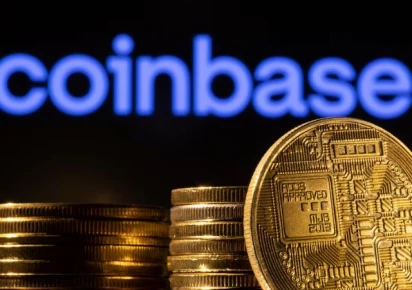By maleeha zahid
Copyright dailytimes

A rapid global push by crypto companies to sell tokens linked to traditional stocks is alarming financial experts who warn these experimental products may threaten investor safety and market stability. With growing interest in blockchain-based assets, major platforms like Robinhood, Gemini, and Kraken have launched tokenised stocks in Europe, while Coinbase and startup Dinari seek approval to introduce similar offerings in the United States. Meanwhile, Nasdaq has proposed becoming the first major exchange to trade tokenised shares, signaling how quickly the concept is expanding worldwide.
Tokenised stocks, built on blockchain technology, are designed to track real-world equities, allowing 24/7 trading and instant settlement. Proponents argue these products could revolutionize global stock markets by improving liquidity and reducing transaction costs. The total value of tokenised public stocks has now reached $412 million — a sharp rise from just a few million dollars a year ago. However, experts caution that these instruments often lack the same rights and protections as traditional stocks, leaving investors exposed to unclear ownership structures and potential financial risks.
Read more : /gold-breaks-4000-mark-amid-economic-turmoil/
Legal analysts describe most stock tokens as synthetic derivatives rather than genuine equity, meaning they do not grant voting rights or dividends. This creates confusion among investors and opens the door to possible misuse or misrepresentation. Some tokens are backed 1:1 by actual shares, while others merely provide exposure through complex contracts. The absence of uniform rules has resulted in differing levels of investor protection, with critics warning that the fragmented system could destabilize broader financial markets if not carefully regulated.
In Europe, Robinhood and Kraken operate under existing derivatives laws, but several legal experts argue that these frameworks are outdated for such innovative financial products. The U.S. Securities and Exchange Commission (SEC) under President Trump’s administration is reportedly considering exemptions for tokenised securities, drawing criticism from established Wall Street institutions. Financial heavyweights like Citadel Securities have expressed concerns that widespread tokenisation could divert liquidity away from traditional stock exchanges, further complicating market regulation and transparency.
Read more : /bitcoin-smashes-record-soars-beyond-125000-mark/
Regulatory agencies across Europe and the United States are closely monitoring the situation. The World Federation of Exchanges recently urged regulators to impose stricter controls on tokenised assets, warning of insufficient investor protections and liquidity fragmentation. However, some industry players, such as Kraken and Ondo Finance, insist that tokenisation can enhance transparency if implemented responsibly, with full collateralization and clear investor rights. As crypto-driven innovation continues reshaping global finance, the challenge for regulators remains balancing modernization with investor protection.